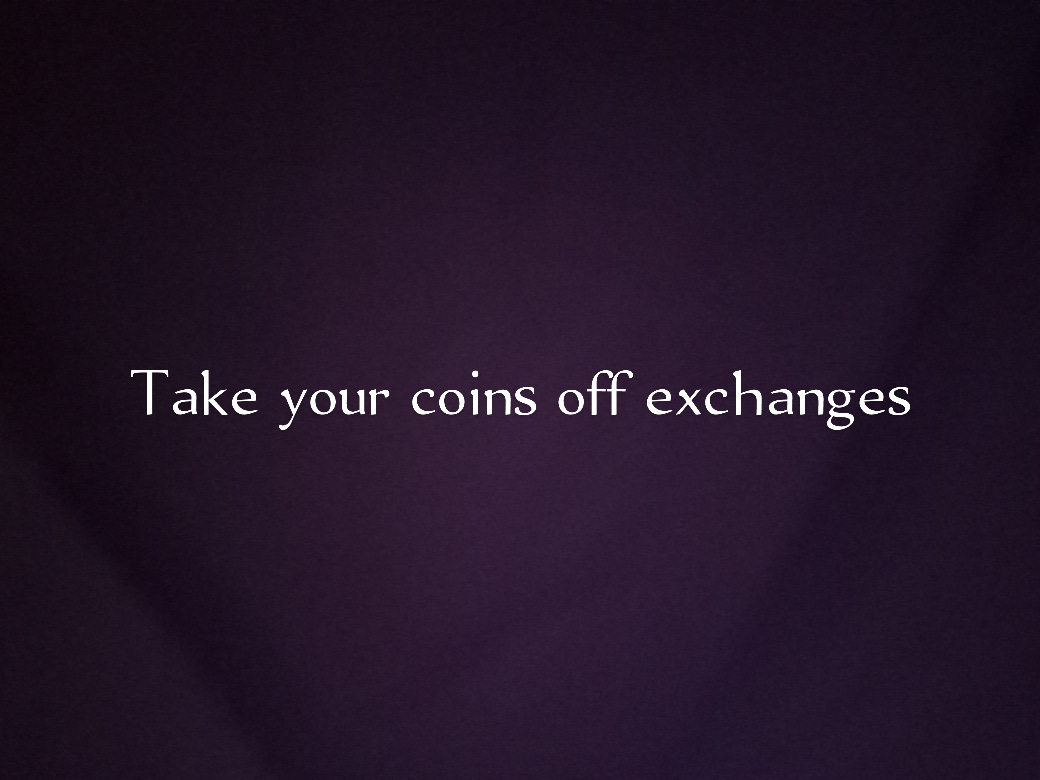TAKE YOUR COINS OFF CENTRALIZED CRYPTO PLATFORMS
Why you should keep your coins in self-custodial wallets
Cryptocurrency is an emerging industry, and many projects will fail. If you've been following up on the cryptocurrency space, you'll know that this 2022 bear market has seen many crypto firms collapse. The problem is that when these things happen, the customers become unsecured creditors, which means someone that lent money without collateral, so you will have to be at the mercy of these platforms to give you back your money.
Mt. Gox went offline in 2014, but they just announced in 2022 that they'd repay a fraction of what customers have lost. So, their creditors have been waiting eight years to receive a fraction of their money. And remember, it was the announcement, not the actual distribution; who knows when distribution will finally happen?
What about the recent troubled platforms like Three Arrow Capital, Voyager, Celsius, and many others? Three Arrow Capital has filed for chapter 15 bankruptcy which has to do with cross-border bankruptcy proceedings; one of the primary goals of chapter 15 is to protect the debtor or troubled company. Voyager and Celsius both filed for Chapter 11 bankruptcy which will allow them to continue operating while they restructure and then find a way to pay back their creditors and users. Now you see, when you put funds in any of these centralized platforms, your interest is the least to be protected when a problem arises.
A recent Merchants survey found that up to 50% of South Africans will Invest in cryptocurrency if banks offer it. There's nothing wrong with that, but it shows how people prefer to have centralized institutions handle their money instead of keeping it themselves.
Another problem with all these centralized crypto platforms is that, unlike traditional finance firms, they are majorly unregulated and uninsured. The United States Securities Investor Protection Corporation (SIPC) protects the customers of securities firms up to $500,000, while the Federal Deposit Insurance Corporation (FDIC) insures bank deposits up to $250,000. So, you get some protection with traditional financial institutions, but with cryptocurrency platforms, there's no protection. But Cryptocurrency gives you the power to be your bank through self-custodial platforms, so you don't have to rely on any platform for protection.
FDIC recently ordered Voyager to desist from telling its customers that their deposits are FDIC insured. Remember, Voyager is insolvent, meaning that the likely hood of customers getting their money back is slim.
Many go to these centralized platforms to lock up funds because of their massive incentives. However, in the long run, you'll notice that no matter what incentive they offer, it does not worth losing your entire portfolio. But some keep funds in exchanges because of the massive liquidity there for trading. But when you are done with trading, move those funds out.
Self-custodial wallets enable you to keep your private keys which makes you your bank. Private keys are a bunch of words given to you on wallet creation to access your funds from any self-custodial platform. But remember, if you lose your private keys, your funds are lost forever, but that shouldn't scare you. Self-custodial wallets can come as mobile apps, desktop apps, or hardware wallets. With mobile and desktop apps, you get to write down your private keys somewhere and keep them safe because it is the only access to your funds; some examples of these self-custodial wallets include Trust wallet, MetaMask, and Exodus. Hardware wallets is a device that stores your private keys so you don't write out have to write out anything; examples include Ledger, Trezor, and SafePal S1.
Now let's take a look at why you should use self-custodial wallets.
(1). Self-custodial wallets don't depend on any platform to function: Let's say you have a wallet address that was created with Trust wallet, but you want to use MetaMask to perform some Defi activities; all you have to do is import the private keys that you received in Trust wallet into MetaMask, and all your assets will appear. You can also import it into any desktop or web apps that are self-custodial and continue using your assets. The same thing with a hardware wallet; your funds are not in the hardware wallet; they are in the blockchain; what your hardware wallet is holding is your private keys. You can import your Ledger into MetaMask or Trust wallet, or any other wallet. So self-custodial wallets give you total freedom.
(2). Self-custodial wallets make it impossible to lose your funds: The ability to be independent of any particular app or platform makes it impossible for you to lose access to your money, that's except if you lose your wallet keys or lose your hardware wallet. Self-custodial wallets are very safe and secured; it's highly encrypted and cannot be hacked. For anyone to access your wallet, they will need your private keys, so keep them safe.
Also, never store your private keys in any online cloud or storage because that will most likely lead to a loss of funds. Write your keys down in a book and keep it safe. It is also advisable to write your private keys in more than one book, so if you lose one, the other remains. As for your hardware wallet, keep it where you know it's safe.
Finally, there's nothing like a safe, centralized platform to store your assets; all of them eventually fail in one way or another. And you are likely going to be very much affected. Hold your keys and stay safe.




